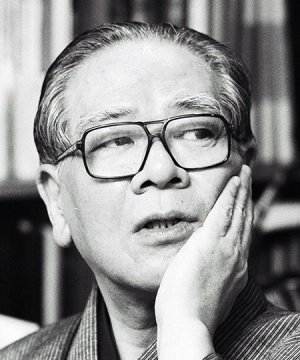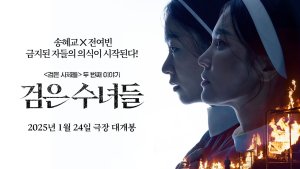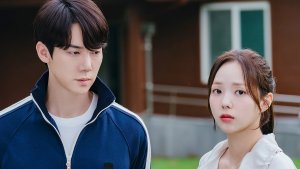Ikenami Shotaro
- Name: Ikenami Shotaro
- Native name: 池波正太郎
- Also Known as: Ikenami Shoutarou, いけなみ しょうたろう
- Nationality: Japanese
- Gender: Male
- Born: January 25, 1923
- Died: May 3, 1990
He was born in Seitencho, Asakusa-ku, Tokyo, Japan. His father worked as a messenger at a Nishikikito warehouse in Nihonbashi, while his mother was the eldest daughter of a metalworker in Asakusa. Following the Great Kanto Earthquake on September 1 of the same year, his family evacuated to Urawa, Saitama, and lived there until he was six years old. In 1929, they returned to Shitaya, and he enrolled in Negishi Elementary School. Due to financial difficulties, his father opened a billiards hall in Jonegishi with the financial support of relatives, but the marriage ended in divorce this year due to marital discord.
Raised by his mother, he moved to his grandfather's house in Asakusa Eijucho and transferred to Nishimachi Elementary School in Shitaya. During his elementary school years, he excelled in drawing and dreamed of becoming a disciple of the Japanese painter Kaburagi Seiho.
In 1935, he graduated from Nishimachi Elementary School. Although his teacher recommended further education, due to family circumstances, he went into service. Initially, through family connections, he worked at the Kabushiki Genbutsu Torihikiten Takasaki Shoten, but after about six months, he switched to painting work. Later, he left that job as well and joined the Kabushiki Nakaimai Ten Matsushima Shoten, where he worked until entering the National Labor Service Training Institute in 1942. During his time at Matsushima Shoten, using tips and pocket money as capital, he engaged in secret stock trading, earning more than his monthly salary.
In December 1941, the Pacific War began, and the following year, he was mobilized for labor service, leading to his resignation from Matsushima Shoten and enrollment in the National Labor Service Training Institute. In the same year, he was assigned to the Shibaura Kayaba Factory, where he learned lathe machine skills. Initially intended to handle accounting at the direction of the institute's director, Shotaro, driven by his own desire, became involved in practical work, with careful guidance from his superiors enabling him to master the techniques within a few months. During this time, he submitted sketches and other works to the literary section of "Fujin Gaho" magazine. He earned his first manuscript income of 50 yen for "Brother's Return," marking the beginning of his career as a writer.
In the winter of 1943, he was transferred to a factory in Ota, Gifu, where he also took on the role of instructor for lathe workers. On New Year's Day of the following year, he had a long-awaited reunion with his father, who had been conscripted into a steel mill in Nagoya. During holidays, he explored the mountains of the Chubu region and occasionally traveled to Tokyo to watch Kabuki performances. However, despite reaching the age of majority the previous year, Shotaro finally received his own draft notice, leading him to resign from the factory.
In April 1944, he joined the Yokosuka Marine Corps. Shortly after, he enrolled in the Takayama Marine Corps' automotive training school. However, he grew disenchanted with the violent teaching methods of the instructors and their involvement in smuggling activities. He frequently displayed rebellious behavior, resulting in repeated disciplinary actions and ultimately leaving the training school without completing the program. He was then transferred to the 801st Air Corps in Isogo, Yokohama, where he served in communications duty as a telephone operator.
On March 10, 1945, his family's home in Asakusa Nagisumachi was destroyed during the Tokyo air raids. He was promoted to Petty Officer and reassigned to the Mihoe Air Base in Yonago. There, he became the head of the telephone exchange room. Despite the deteriorating war situation and the nationwide threat of air raids, Yonago experienced relatively peaceful days. During this time, Shotaro immersed himself in composing haiku and tanka poetry during his leisure moments. With the end of the war on August 15 due to the Potsdam Declaration, he was demoted to Private Second Class, and after completing post-war tasks, he returned to Tokyo on August 24.
In 1946, under the occupation, he became an employee of the Tokyo Metropolitan Government and worked at the Shitaya Ward Office. His duties included spreading DDT around various places accompanied by student part-time workers. Having lost his home in the air raids and facing the return of the landlord from evacuation, he slept and worked in the ward office while immersing himself in his tasks.
In 1948, he paid his first visit to Hasegawa Shin with his practice works in hand. From the following year, he began to study playwriting in earnest under Hasegawa's guidance and participated in the critique sessions of the "Nijurokunichikai" (The 26th Day Association), a gathering of disciples. In 1950, he married Kataoka Toyoko, and they started a household in a rented house. Shortly thereafter, they won a housing lottery they had applied for, and with the proceeds from the performance fees for "Niboshi" performed at the Shin Kokuritsu Gekijo, they built a new home. From then on, Shotaro deepened his relationship with the Shin Kokuritsu Gekijo to the extent that he was considered a resident playwright. At the urging of Hasegawa, he also began publishing novels in 1954.
Despite the lack of recognition, he continued to steadily write novels alongside his playwriting. In September 1959, he published his debut collection of works titled "Shinano Daimyoki" (Records of the Daimyo of Shinano). In his personal life, at the end of 1958, he finally reunited with his father, with whom he had lost contact since meeting in Nagoya just before his deployment.
Meanwhile, as a playwright in 1963, Shotaro severed ties with the theatrical world and the Shin Kokuritsu Gekijo (New National Theater) for a while and focused solely on writing novels. This decision stemmed from his questioning of the state of the New National Theater and the friction caused by Shotaro's stubbornness. On June 11 of the same year, his mentor, Hasegawa Sho, passed away. This event prompted Shotaro to resign from the Twenty-Sixth Day Association and the Shin Takakai, and thereafter, he continued writing without affiliating with any particular group or organization.
In March 1990, he was urgently admitted to Mitsui Memorial Hospital due to acute leukemia, and he passed away on May 3rd at the same hospital at the age of 67.
(Source: Japanese = Wikipedia || Translation = MyDramaList) Edit Biography
Screenwriter
| Title | Rating |
|---|---|
| Yami no Karyudo | 7.0 |
Original Creator
| Title | Rating |
|---|---|
| Onihei Hankacho: Chigashira no Tanbei | 0.0 |
| Onihei Hankacho: Deku no Juzo | 0.0 |
| Onihei Hankacho: Ketto | 0.0 |
| Onihei Hankacho: Honjo Sakura Yashiki | 7.4 |
| Joiuchi | 0.0 |
| Kenkyaku Shobai Special: Onna Yojinbo | 0.0 |
| Onihei Hankacho | 0.0 |
| Sanada Taiheiki | 8.0 |
| Shikake Hito Baian | 0.0 |
| Onihei Hankacho | 2.0 |
| The Last Samurai | 7.9 |
| Onihei Hankacho Season 2 | 0.0 |
| Shin Nihon Kenkaku Den 2 | 0.0 |
| Nihon Kenkaku Den 3 | 0.0 |
| Taking the Castle | 1.0 |
Trending Articles
'When the Phone Rings' takes Netflix by storm, scores new personal-best ratings
News - Dec 15, 2024
Check out the latest domestic ratings and rankings of weekend K-dramas When the Phone Rings, The Fiery Priest Season 2, and Love Your Enemy
'When the Phone Rings's production team issues apology for a controversial scene
News - Dec 3, 2024
The production team of When the Phone Rings has issued an apology for a controversial scene from the K-drama
'Blossom's producer shares behind-the-scenes insights from the Chinese drama
News - Dec 13, 2024
Read the full interview from the Blossom's producer
Park Shin Hye, Ahn Bo Hyun, Ji Sung and more nominated for SBS Drama Awards 2024's Grand Prize
News - Dec 18, 2024
Check out the full list of Grand Prize nominees for the SBS Drama Awards 2024
'Resident Playbook' starring Go Youn Jung will reportedly air next year!
News - Dec 13, 2024
Resident Playbook will possibly premiere in 2025 after several postponements.
Song Hye Kyo and Jeon Yeo Been are all praise for each other at 'Dark Nuns's press conference
News - Dec 16, 2024
Also check out the latest teaser from the upcoming horror K-movie Dark Nuns
Song Hye Kyo, Jeon Yeo Been try to save a boy possessed by an evil spirit in 'Dark Nuns'
News - Dec 12, 2024
The upcoming Korean horror thriller Dark Nuns, starring Song Hye Kyo and Jeon Yeo Been, released a spooky teaser
'When the Phone Rings' continues to rise in ratings despite a one-week hiatus
News - Dec 14, 2024
Despite a one-week hiatus, the ratings of When the Phone Rings continued to gain popularity.

















